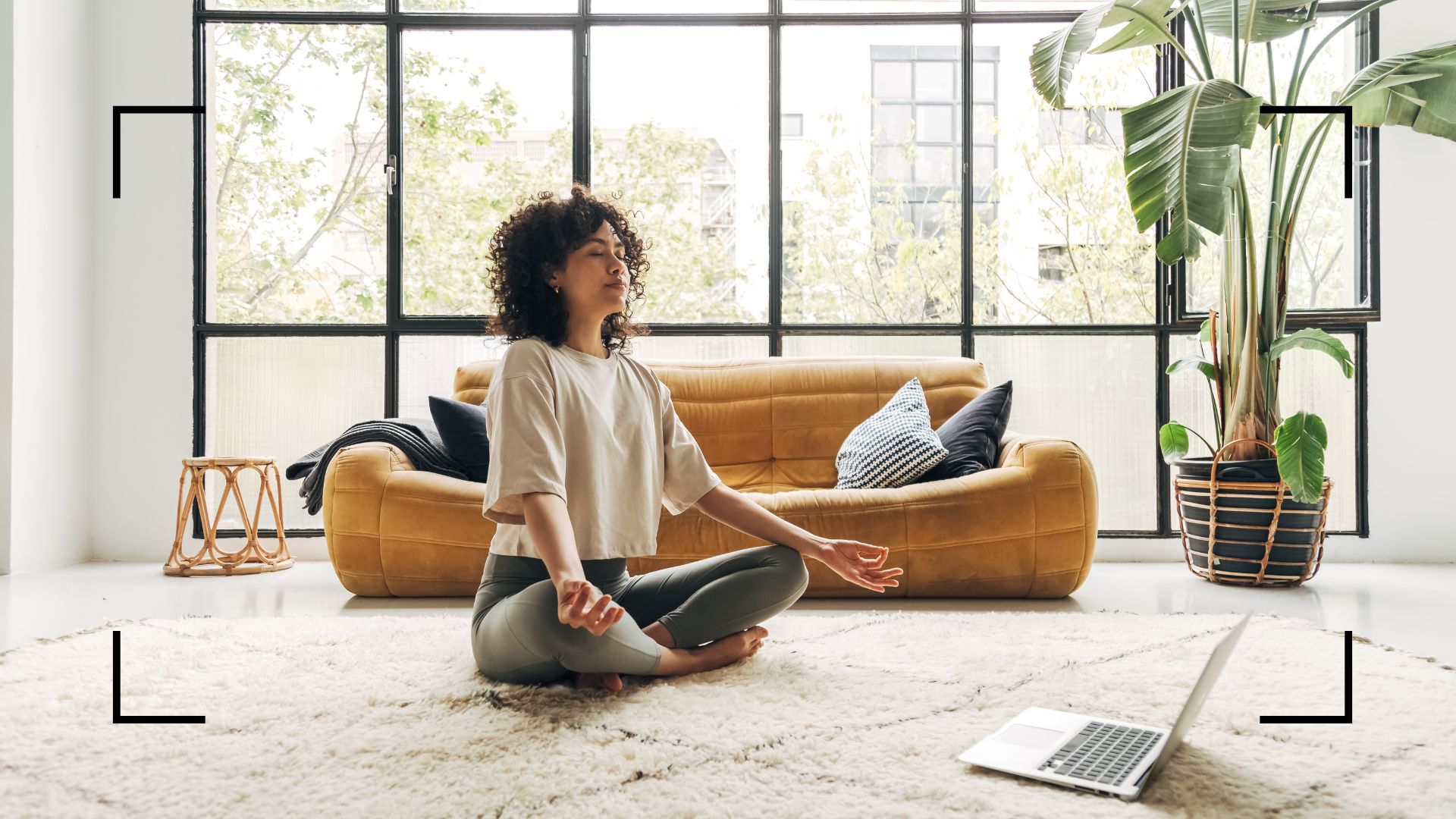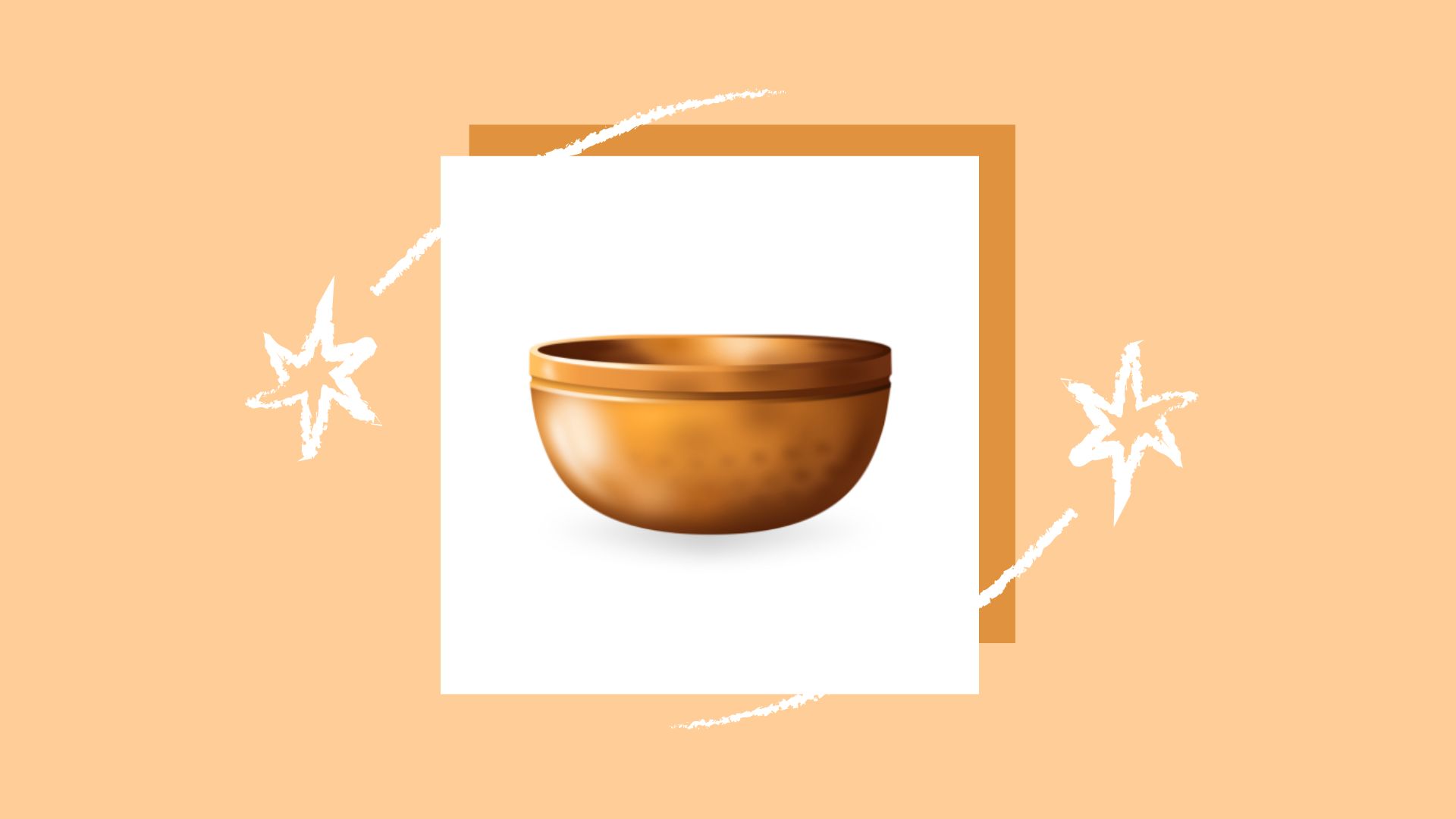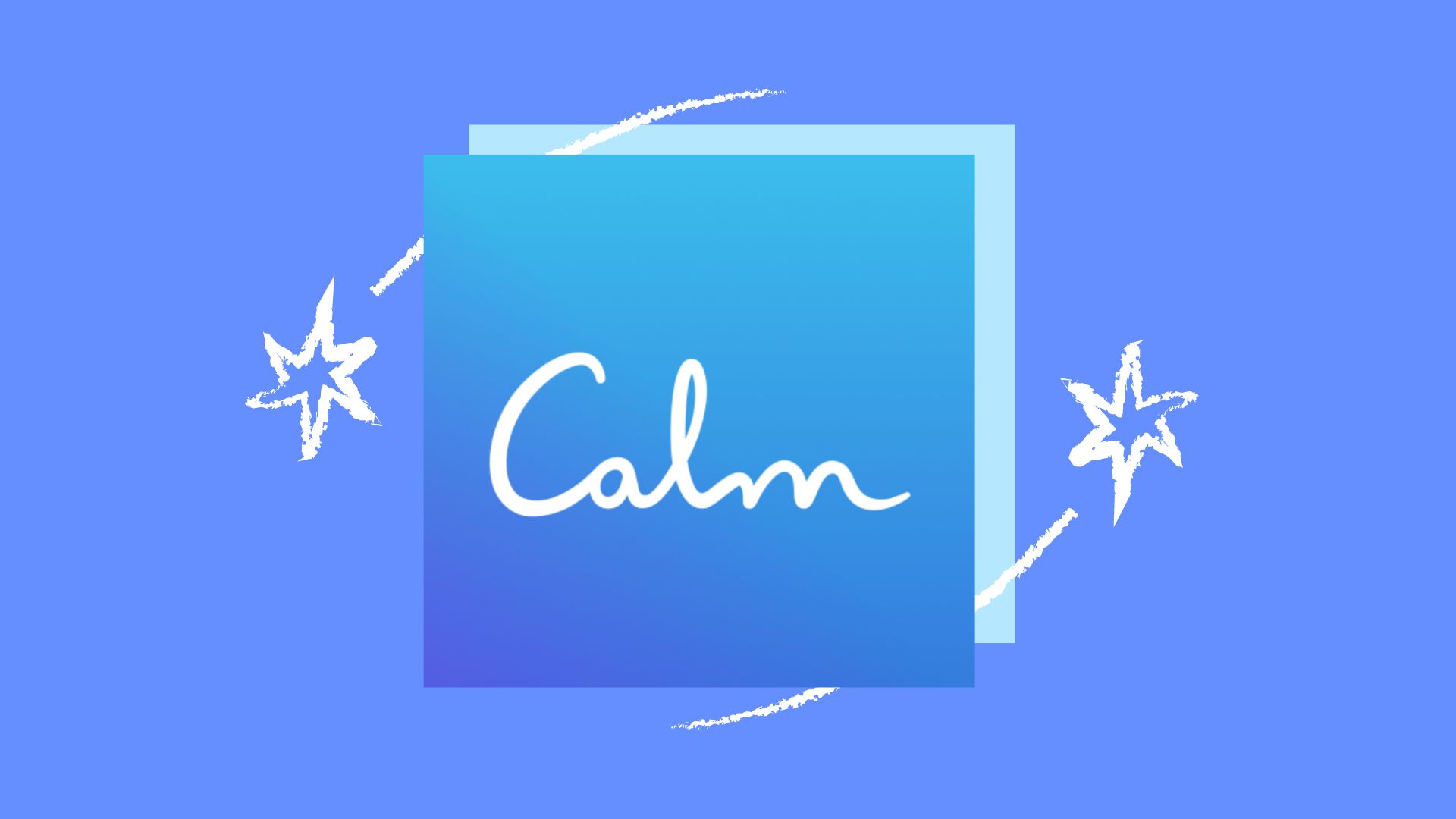The best meditation apps to help you find calm and relaxation this week
Try one of the best meditation apps for a moment of peace, tried and tested by us


The best meditation apps can help you find a moment of calm on a busy day. Whether you're looking to amp yourself up for the morning or wind down for bed, programs available on these platforms offer a whole range of mind and body exercises to help you relax.
Meditation is one of the best activities we can do for our bodies. Many people think it's all about shutting out the world for five minutes but meditation is more about getting in touch with the world around you and your body through mindful breathing.
Along with the best yoga apps, meditation apps are some of the most popular health apps out there as they can offer practices from beginner to advanced levels and even help you to achieve particular goals, such as improving your sleep, workout motivation, or focus.
Best meditation apps

1. Insight Timer
Our expert review:
Specifications
Reasons to buy
Reasons to avoid
One of the most popular but underpublicized meditation apps is Insight Timer, with over 6 million users currently logged on. The app is clearly well researched and thought out as it's based on the personal meditations and teachings of over 3,000 teachers. I found this not only means you can always find a session to suit your mood, but you'll also never have two practices the same.
When I tried the Insight Timer app for myself, I was so impressed with the vast range of guided meditations available. There are over 14,000 in total, all offering something different. Some are purely for relaxation purposes and make for some of the best sleep aids, others will help you find a moment of calm in a busy day, and some are geared toward more specific needs. These include forgiveness, letting go, and building confidence, alongside sessions for particular medical concerns like boosting fertility. Meditations vary in length, with some just a few minutes long, and others that last over an hour.
The paid subscription works out at $60 / £48 with a free 30-day trial. While you don't get loads for your money compared to some of the other apps on the list, you will be able to listen to your meditations and mindfulness sessions offline, which will undoubtedly help those who are distracted by notifications during practice.

2. Calm Meditation
Our expert review:
Specifications
Reasons to buy
Reasons to avoid
Calm is one of the most-downloaded and best meditation apps out there for good reason. While its main focus is meditation, it does offer a range of different activities for different purposes, including mindfulness, short stretching sessions, and even workouts.
Sign up to our free daily email for the latest royal and entertainment news, interesting opinion, expert advice on styling and beauty trends, and no-nonsense guides to the health and wellness questions you want answered.
One of the best features is the Daily Calm feature, which offers users a new 10-minute meditation every day. I found this was best put to use at the beginning or the end of the day, depending on the type of meditation on offer as they're all very relaxing. Much like Insight Timer, Calm's sessions last between three and 30 minutes so they're easy to slot into your schedule.
When you first open Calm, the app welcomes you and invites you to take a couple of deep breaths. Then a message pops up to ask what your reasons are for using the app so that it can better suggest options for you. These include: Are you looking to increase your happiness or reduce stress? Do you want to get better sleep or reduce anxiety? Or all of the above? Once you're in the app, you can then choose from meditation sessions in various categories depending on your goals. These include meditations for reducing stress, improving focus, reducing anxiety, and improving your relationships.
You can also sample some soothing bedtime stories from celebrities, including Idris Elba and Kate Winslet, to help you fall into a relaxing snooze. While these might be a little long - considering many of Calm's other features are geared towards 10-minute-max sessions - if you like longer moments of meditation in the evenings, one of these stories could be for you. There are also 30+ nature sounds to lull you into a sleepy stupor or use Calm as one of the best productivity apps to help you focus.

3. Headspace
Our expert review:
Specifications
Reasons to buy
Reasons to avoid
If you're going to take the plunge and subscribe to a mindfulness and meditation app, it should be this one. Headspace is free to download but you have to start paying the subscription cost of $12.99 / £9.99 per month after a seven-day free trial. While there are some free sessions available in the app, most of them (including the best ones) are only available with a subscription.
When testing out Headspace for myself, I found it was best to look at the content in five different ways: Meditate, Sleep, Move, Focus, and Social Connection. While Meditation is a category on its own, they all have a role in creating a mindful space and reducing stress.
- Meditate: This category offers courses and singular sessions around different topics, with longer courses focusing on skills like how to be more confident, spark creativity or deal with difficult emotions like grief. Shorter sessions can be one-offs for when you need it, like when you have a difficult day at work. Switch up narrators as you like, track your progress, and there's a new positive quote to read every day.
- Sleep: This is pretty much what it says on the tin, I found. More and more of us want to know how to sleep better and this part of Headspace helps with that. There are guided meditations with a night mode, including short breathing exercises and mindfulness moments to help you drift away from your thoughts. While Sleep Radio offers eight solid hours of sounds, similar to Calm, with rain and ocean atmospheres proving popular.
- Move: Move is a category designed to make you feel less stressed by encouraging you to work out. It's not quite one of the best workout apps but as a fairly new feature, it's really good. While you're unlikely to find a grueling workout that pushes you into that high-endorphin zone, that's not really what Headspace is about. These workouts are all low to medium impact and are between 10 to 30 minutes long.
- Focus: This is a great one if you just really want to get your head down and do some work but often find yourself distracted easily. It offers multiple playlists of curated music and meditation playlists, featuring ambient and low-fi choices.
- Social connection: Social connection is all about being around the people you love and vice versa, without having to be in the same room. There's no video function or anything like that, rather you can update and share your meditation progress with friends and family if you wish.

4. Ten Percent Happier Meditation
Our expert review:
Specifications
Reasons to buy
Reasons to avoid
Up until the last few years ago, mindfulness and meditation were fairly niche. They were also something that not everyone understood, let alone wanted to take part in. Ten Percent Happier is a meditation app that's made for those exactly like the founder, who is a little skeptical of the benefits of mindfulness and what it can offer.
The app is based on the best-selling book, 10% Happier: How I Tamed the Voice in My Head, Reduced Stress Without Losing My Edge, and Found Self-Help That Actually Works - A True Story, by Dan Harris. Described as "meditation for fidgety skeptics", it includes all you'll need to get started. Find the classic guided meditations, as well as a library of video lessons, which aim to help you with the key components of life: sleep, relationships, work, stress, health, and many more. Download one of the best habit tracker apps to accompany this, if you want to make mindfulness more of a daily practice.
What I loved about this app when testing it for myself was that the meditations could be completed at any time, with options to do them while you do something else - like showering or cleaning your teeth. This is something I found particularly useful as there wasn't always time to settle down for a story before sleep or complete a 10-minute meditation before heading off to work. Plus, for those new to meditation, it's an easy way in.
Like Inside Timer, there are plenty of respected meditation teachers on the app, ready to help you out. And like Headspace and Calm, you'll need to pay if you want full access to all of the app's features. This is paid for on either a yearly or monthly subscription basis at $99.99 / £80 per year.

5. Medito
Our expert review:
Specifications
Reasons to buy
Reasons to avoid
Founded by a non-profit organization that aims to bring meditation to everyone, Medito is one of the best meditation apps for totally free mindful activities. In many ways, it's similar to the others as it offers courses or one-off sessions at various difficulties, so anyone from a total meditation beginner to a mindfulness expert could take part.
Where it differs is that each topic is led by an emotion, rather than a specific category, along with sessions dedicated to improving a particular emotional skill - like forming a habit or learning to be present in the moment. There are plenty of important ones to choose from, covering a broad spectrum of feelings too so you won't feel like you have to whittle them down.
However, if you do have a particular goal - like learning how to sleep better - then you can follow sessions to help you do this. It's just not the primary aim of the app, unlike Headspace or Calm, for instance. This section of Medito has various 8-minute-long meditation and mindfulness sessions, broken down right from when you get into bed to when you're just about to drift off (just don't forget to plug your phone in.)
How to choose the best meditation app for you
- Keep your options open: Yoga teacher and meditation expert Caroline Lucas says her favorite meditation app is Insight Timer, which is our top pick too, thanks to the thousands of free guided meditations it offers. "There's not much content you can access for free, you'll be spoiled for choice," she says.
- Find your level: As meditation is a popular practice that's been around for thousands of years, some people dedicate their lives to becoming masters of the activity so some meditation apps will be for those advanced in the practice. This is why Lucas, who is also the resident teacher at Karma Studios, recommends finding an app at your level - like Headspace. "The free version of the app offers a basic course, which will teach you the essentials of meditation and mindfulness with the option to subscribe for hundreds more meditations on everything from sleep to stress. It’s very accessible and you can do some of the meditations while taking a walk for ten minutes."
- Decide whether you want a subscription or not: Many of the best meditation apps work well on just the free version of the app but you'll need a subscription to access all features. One worth subscribing to is Calm, says Lucas. "The free version is slightly limited but if you can afford the subscription in addition to guided sessions, it offers more free-form exercises and flexible meditation timers, plus a dedicated music section."
- Can it be personalized? Everyone chooses to meditate for a different reason, so it's a good idea to see if you can personalize your meditation sessions for your goals. Ten Percent Happier, another one of the best meditation apps on our list, is particularly good for this, says the yoga expert. "The app builds a personalized mindfulness plan for you based on a questionnaire and can set up daily meditation reminders."
Is meditation good for you?
There are so many benefits of meditation apart from teaching you how to relax your mind, contrary to what many people think. "One of the most common misconceptions is that it's about 'switching off' your brain," says Caroline Lucas. "Learning to meditate is one of the most important things you can do for yourself."
Regular meditation practices have been proven to reduce stress and alleviate anxiety and depression, she notes, pointing to research by Massachusetts General Hospital that found mindfulness-based stress programs have a positive effect on reducing symptoms in those with generalized anxiety disorder. It may also help us develop better bodily responses to stress.
It also works wonders for our sleep, studies by the National Institutes of Health in Maryland reveal, with results showing that mindfulness meditations can significantly improve our overall sleep quality. This element of our sleep plays a huge role in how awake we feel the next day, our ability to regulate our mood, and contributes to better brain health.
As for its physical benefits, those who practice meditation regularly have been known to experience an uptick in their immune response and lower blood pressure, respective reviews by the University of South Carolina and Kent State University suggest.
"Above all, meditation simply makes you feel better," says Lucas. "We're calmer, more resilient, better able to respond to stressful situations rather than react.
Does meditation help with anxiety?
Yes, if you're dealing with everyday anxiety then meditation can certainly help, says Lucas. "Taking some quiet time to breathe deeply can help bring about the ‘relaxation response’. Breathing deeply in and out through the nose increases the supply of oxygen to your brain and stimulates the parasympathetic nervous system, which promotes a state of calmness. Breathing techniques help you feel connected to your body as they bring your awareness away from the worries in your head and quiet your mind."
It's perfect to use as a coping technique if you find yourself feeling nervous or anxious, she adds, because meditation is something you can do anywhere and everywhere. "The beauty of meditation is that it’s accessible you can do some deep breathing anywhere at any time, no one even needs to know what you are doing."
Many meditation apps also double up as the best time management apps as they have helpful counters and tips for getting this anxiety-calming measure into your day, so if you're feeling pushed for time, it may also be worth looking into these.
Tips for meditating
- Focus on your breathing: Predictably, you'll need to really focus on your breathing during meditation. "As you breathe, do your best to fully experience the movement of the breath inhaling and exhaling, letting this become the focus of your meditation," says Lucas.
- Accept that your mind will wander: Whether you're new to meditation or have been practicing for a couple of months, it's perfectly normal for your mind to wander. When you notice it, the expert says, "try to simply redirect your focus back to your breathing. Using a counting technique can be very beneficial for this. As you breathe in, follow the numbers 1, 2, and 3, and as you breath out follow the numbers 1, 2, 3.
- Notice your response: "Do your best to simply observe each breath, giving it with your full attention and you will note how the body starts to feel a little calmer and more relaxed."

Grace Walsh is woman&home's Health Channel Editor, working across the areas of fitness, nutrition, sleep, mental health, relationships, and sex. She is also a qualified fitness instructor. In 2025, she will be taking on her third marathon in Brighton, completing her first ultra marathon, and qualifying as a certified personal trainer and nutrition coach.
A digital journalist with over seven years experience as a writer and editor for UK publications, Grace has covered (almost) everything in the world of health and wellbeing with bylines in Cosmopolitan, Red, The i Paper, GoodtoKnow, and more.